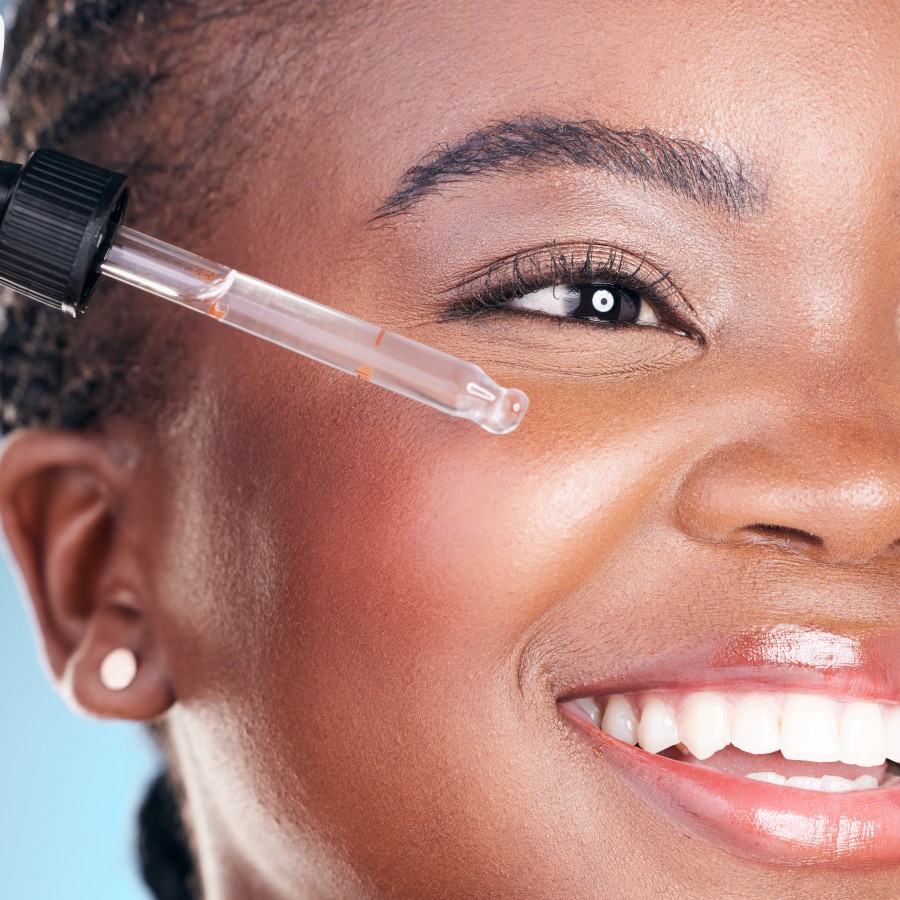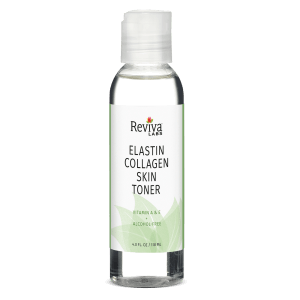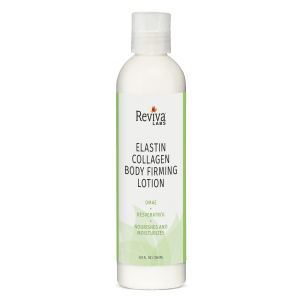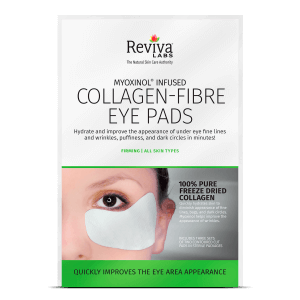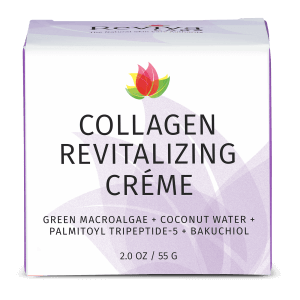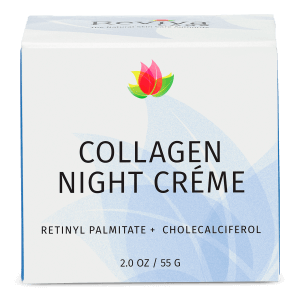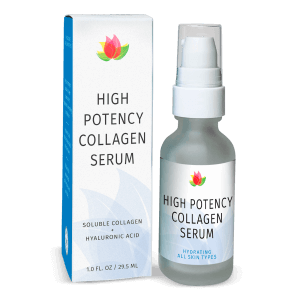Clean Beauty, Ingredients, Natural, Reviva Labs, Skin Care
Which Type of Collagen is Best for Your Skin?
Collagen is an essential protein that plays a crucial role in maintaining healthy skin, hair, nails, and overall body function. As we age, our natural collagen production decreases, leading to visible signs of aging such as wrinkles, sagging skin, and brittle nails. To combat these effects and promote youthful and vibrant skin, many people turn to collagen supplements and topical products. However, with numerous types of collagen available on the market, it can be challenging to determine which one is best for your skin. In this comprehensive guide, we will explore different types of collagen, their benefits, and the most effective ways to incorporate collagen into your skincare routine.
Understanding Collagen: The Building Block of Healthy Skin
Collagen is a complex protein that is present throughout our bodies, providing structural support and elasticity to various tissues, including the skin, bones, tendons, and ligaments. It is composed of amino acids, including hydroxyproline, glycine, and proline, which are essential for maintaining skin health. There are at least 28 different types of collagen, but the most common types found in the skin are Type I, Type II, and Type III collagen.
Type I Collagen: The Foundation of Youthful Skin
Type I collagen is the most abundant type of collagen in the body and is primarily responsible for maintaining the strength and elasticity of the skin. It forms a dense network of fibers that provide structural support to the dermis, the deeper layer of the skin. Type I collagen helps to reduce the appearance of wrinkles, promote skin hydration, and improve overall skin texture. It is also essential for maintaining healthy hair and nails.
Type II Collagen: Supporting Joint Health
Type II collagen is primarily found in the cartilage, which cushions and protects our joints. It plays a crucial role in maintaining joint flexibility and mobility. Supplementing with Type II collagen can help support joint health, reduce joint pain, and improve overall joint function. Active individuals who rely on their joints for physical activity may benefit from incorporating Type II collagen into their diet or wellness routine.
Type III Collagen: The Supporting Network
Type III collagen is often found alongside Type I collagen in the body and plays a supportive role in maintaining the structure and elasticity of the skin. It is also present in connective tissues, such as blood vessels, muscles, and organs. Type III collagen is vital for the overall health and integrity of these tissues. Combining Types I and III collagen in your skincare routine can promote youthful and radiant skin while providing additional benefits to other areas of your body.

The Pros and Cons of Different Collagen Sources
Collagen can be derived from various sources, including animals’ bone and skin, as well as marine sources such as fish. Each source has its own unique characteristics and benefits. Let’s take a closer look at the pros and cons of different collagen sources.
Marine Collagen: A Bioavailable Option
Marine collagen is derived from fish or other marine sources and is known for its high bioavailability. Bioavailability refers to the body’s ability to absorb and utilize a substance effectively. Marine collagen is rich in Type I collagen, which is essential for promoting skin health. The smaller peptide molecules in marine collagen make it easier for the body to absorb and utilize. However, individuals with seafood allergies should exercise caution when considering marine collagen supplements.
Bovine Collagen: Rich in Types I and III Collagen
Bovine collagen is derived from cows and is a popular choice for collagen supplementation. It contains both Type I and Type III collagen, which are beneficial for skin health. Bovine collagen is known for its potential to improve skin hydration, reduce the appearance of wrinkles, and support overall skin elasticity. However, it may not be as easily absorbed by the body compared to marine collagen.
Other Collagen Sources: Chicken, Eggshell Membranes, and More
In addition to marine and bovine collagen, collagen can also be derived from other sources such as chicken and eggshell membranes. These sources provide a unique combination of collagen types and amino acids that contribute to overall skin health. While they may not be as widely available as marine or bovine collagen, they can still offer significant benefits for individuals looking to improve their skin’s appearance and health.
Choosing the Right Collagen Supplement or Topical Product
When selecting a collagen supplement or topical product, it’s essential to consider several factors to ensure its effectiveness and safety. Here are some key points to keep in mind:
Look for High-Quality Sources
Opt for collagen supplements or topical products that are derived from high-quality sources. Choose products that use organic, grass-fed, or wild-caught animals to ensure the most natural and sustainable collagen production. High-quality sources are more likely to provide the necessary amino acids and collagen types for optimal skin health.
Consider Bioavailability
Bioavailability is a crucial factor when selecting collagen products. Look for supplements or topical products that contain hydrolyzed collagen. Hydrolyzed collagen undergoes a process that breaks down the collagen into smaller peptides, making it easier for the body to absorb and utilize. This enhances the bioavailability of collagen and maximizes its benefits for your skin.
Check for Additives and Fillers
Avoid collagen supplements or topical products that contain unnecessary additives and fillers. These ingredients can dilute the effectiveness of the collagen and potentially cause adverse reactions. Opt for products that are free from artificial colors, flavors, and preservatives to ensure you’re getting the purest form of collagen.
Follow Recommended Dosages
It’s important to follow the recommended dosages provided by the manufacturer. Taking too much collagen may not necessarily yield better results and can lead to imbalances in your body. Start with the recommended dosage and monitor how your skin responds. You can adjust the dosage as needed to achieve the desired effects.
Complement Collagen with a Healthy Lifestyle
While collagen supplements and topical products can be beneficial, they are not a magic solution for healthy skin. To maximize the benefits of collagen, it’s essential to adopt a holistic approach to skincare. Maintain a balanced diet rich in fruits, vegetables, lean proteins, and healthy fats. Stay hydrated, protect your skin from sun damage, and practice good skincare habits such as cleansing and moisturizing regularly. These lifestyle factors, combined with collagen supplementation, can help you achieve optimal skin health.
Potential Benefits of Collagen Supplementation
Collagen supplementation has gained popularity due to its potential benefits for skin health. While individual results may vary, incorporating collagen into your skincare routine may provide the following advantages:
Improved Skin Hydration
Collagen plays a crucial role in maintaining skin hydration by retaining moisture and promoting a healthy skin barrier. Supplementing with collagen may help improve skin hydration levels, leading to a more supple and radiant complexion.
Reduced Appearance of Wrinkles
As we age, our skin naturally loses collagen, leading to the formation of wrinkles and fine lines. Collagen supplementation can help replenish the skin’s collagen levels, reducing the appearance of wrinkles and promoting smoother skin texture.
Enhanced Skin Elasticity
Collagen is responsible for maintaining skin elasticity, which gives the skin its youthful bounce and firmness. By supplementing with collagen, you can support the production of new collagen in the skin, leading to improved elasticity and a more youthful appearance.
Stronger Hair and Nails
Collagen is not only beneficial for the skin but also for hair and nails. By providing the necessary building blocks for healthy hair and nails, collagen supplementation can help strengthen brittle nails, promote hair growth, and enhance overall hair and nail health.
Joint Health Support
In addition to its effects on the skin, collagen supplementation can also benefit joint health. Collagen is a vital component of cartilage, which cushions and protects our joints. By supporting cartilage health, collagen supplementation may reduce joint pain, improve joint flexibility, and support overall joint function.
The Future of Collagen: Research and Innovation
As the demand for collagen continues to grow, researchers and scientists are exploring new sources and innovative methods to enhance collagen’s effectiveness and bioavailability. Some of the exciting developments in collagen research include:
Plant-Based Collagen Alternatives
While collagen is primarily derived from animal sources, scientists are actively researching plant-based alternatives. These alternatives aim to provide a structurally similar protein to collagen, offering a vegan-friendly option for individuals seeking collagen supplementation.
Advanced Delivery Systems
Researchers are also focusing on developing advanced delivery systems that improve collagen absorption and penetration into the skin. These delivery systems may include nanotechnology and encapsulation techniques to enhance the efficacy of collagen-based skincare products.
Combination Therapies
Combining collagen with other beneficial skincare ingredients, such as hyaluronic acid, vitamins, and antioxidants, holds promise for enhancing collagen’s effects on the skin. These combination therapies may offer synergistic benefits, resulting in improved skin health and appearance.
Incorporating Collagen into Your Skincare Routine
Now that we’ve explored the benefits and different types of collagens, let’s discuss how you can incorporate collagen into your skincare routine effectively. Here are some tips to get you started:
Choose the Right Product
Select a collagen supplement or topical product that aligns with your skincare goals and preferences. Consider factors such as the collagen source, bioavailability, and additional ingredients that may complement collagen’s effects on the skin.
Follow a Consistent Routine
Consistency is key when it comes to seeing results from collagen supplementation. Incorporate collagen into your daily routine and follow the recommended dosage consistently. Over time, you should begin to notice improvements in your skin’s texture, hydration, and overall appearance.
Combine with Other Skincare Practices
Collagen supplementation is most effective when combined with other healthy skincare practices. Adopt a comprehensive skincare routine that includes cleansing, moisturizing, and protecting your skin from sun damage. Additionally, nourish your body with a balanced diet, exercise regularly, and manage stress levels to support overall skin health.
Monitor Your Progress
Keep track of your skin’s progress as you incorporate collagen into your skincare routine. Take note of any changes in skin texture, hydration, and the appearance of wrinkles. Adjust your collagen dosage or skincare routine as needed to achieve optimal results.
Conclusion
Collagen is a powerful protein that plays a vital role in maintaining healthy skin, hair, nails, and overall body function. By understanding the different types of collagen and choosing the right supplementation or topical products, you can support your skin’s health and achieve a more youthful and radiant complexion. Remember to follow a consistent skincare routine, combine collagen with other healthy practices, and monitor your progress to maximize the benefits of collagen for your skin. With the right approach and a little patience, you can unlock the full potential of collagen and enjoy healthy, vibrant skin at any age.



